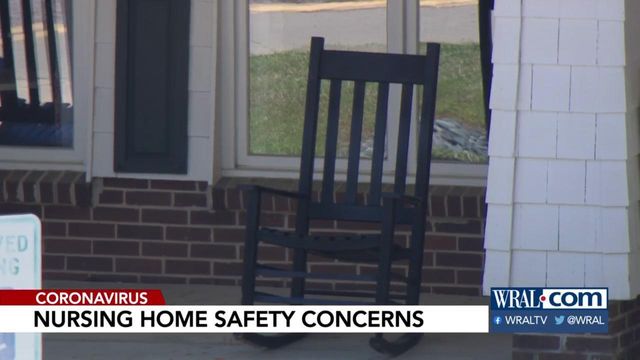Not testing new nursing home residents for virus raises concerns
Seniors living in group settings are at higher risk from coronavirus. But testing isn't required for anyone entering those facilities, including new residents transferring from hospitals treating COVID-19 patients.
Posted — UpdatedSeniors living in group settings like nursing homes and rehabilitation centers are at even higher risk. So far, seven facilities across the state are watching for a possible COVID-19 outbreak following positive cases.
Facilities in North Carolina are urged, but not required, to limit visitation to help prevent the spread of the disease. The state recommends allowing visitors only in extreme circumstances, like end-of-life or other medical emergencies.
Those visitors are supposed to be screened for fever or respiratory illnesses. But despite evidence that asymptomatic people can spread the disease, visitors are not tested.
WRAL Investigates found the same holds true for incoming residents to these at-risk facilities, many of whom are transferring from hospitals dealing with COVID-19.
"I don't think anybody means to put them at risk. I just think there's so much happening," says Lee White, whose 80-year-old mother lives at Hillcrest Raleigh.
White's family became more aware of the situation last week, when the facility notified him that current residents were being moved to a new area to help clear a wing of the building for new patients.
Even with separation between existing and new residents, White is worried.
"My concern is that it would get introduced and then spread like a wildfire through that facility," he said.
White said he wonders why options other than quarantine aren't being considered.
"I think, in this environment, we've got to confirm and verify before we move people around," White says. "We've got to know their status. Are they being tested?"
The state Department of Health and Human Services said incoming residents aren't being tested because "a negative result could give a false sense of security.
"Someone could be incubating and not test positive yet. The recommendation is to quarantine all incoming patients for 14 days," DHHS said in a statement.
"I certainly understand the fear and anxiety," says Adam Sholar, president and chief executive of the North Carolina Health Care Facilities Association.
Sholar says facilities have to follow strict guidelines in these contagious times.
"Just know we're doing everything in our power to keep their loved ones safe," he said.
Sholar also says current delays would make testing every new resident difficult.
"Honestly, the turnaround time for the testing over the past few weeks has been six, seven, eight, nine, 10 days," he said.
If testing isn't possible, White said he wonders why the state isn't looking for other options for transitioning patients, like housing them in medical offices currently closed because of the pandemic.
"We all want the safe, a good safe outcome," says Sholar, adding that nursing and rehab homes are facing the same challenges as the rest of the medical world. "More testing [is needed], but also more personal protective equipment and steps to observe and try to keep those individuals separate."
Related Topics
• Credits
Copyright 2024 by Capitol Broadcasting Company. All rights reserved. This material may not be published, broadcast, rewritten or redistributed.





